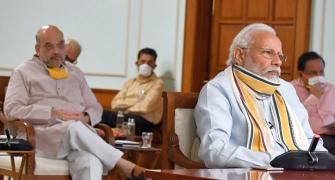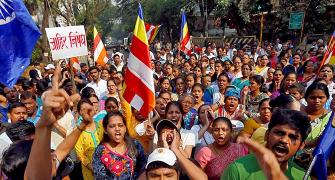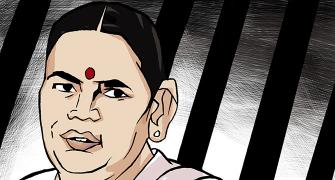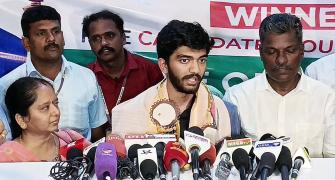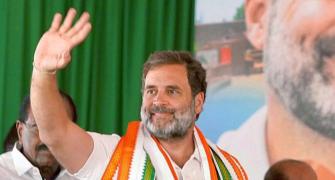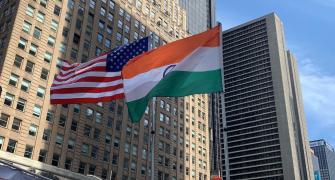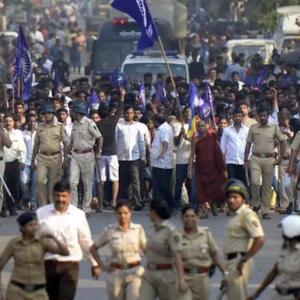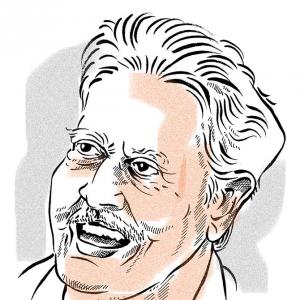Will the latest development see a marked break from the way the case has been going?
Jyoti Punwani reports.

Hope and despair -- these are the two contradictory reactions prevailing among the families of the 16 Bhima Koregaon accused after news that a US lab has found that malware had been planted in the computer of Rona Wilson, one of the accused.
The news was reported in the Washington Post on Wednesday.
The report said that Arsenal Consulting, a US-based forensic lab that had assisted the police in the Boston bombings case, had found that this malware had been used to introduce the 'letters' between the accused and supposed members of the banned Communist Party of India (Maoist) that had been allegedly recovered from Wilson's computer.
These "letters" were used by the police to allege that the accused had links with Maoists; they formed the basis of the case against the accused.
These 'letters' allegedly spoke of a plot to assassinate Prime Minister Narendra Modi; and how the violence that broke out at Bhima Koregaon on January 1, 2018 could be exploited against the government.
They also referred to the accused: All of them city-based lawyers, writers, and professors, providing funds running into crores, weapons as well as bomb-making equipment, and even information on when to strike, to the Maoists who live and operate in the jungles of Chhattisgarh and Jharkhand.
In fact, the police have claimed that even the Elgar Parishad held on December 31, 2017 in Pune, was funded by Maoists. Speeches made at the Parishad were responsible for the violence that occurred the next day at Bhima Koregaon, allege the police.
Interestingly, the Pune police had distributed copies of these 'letters' to the media more than once, drawing the anger of both the Bombay high court and the Supreme Court.
***
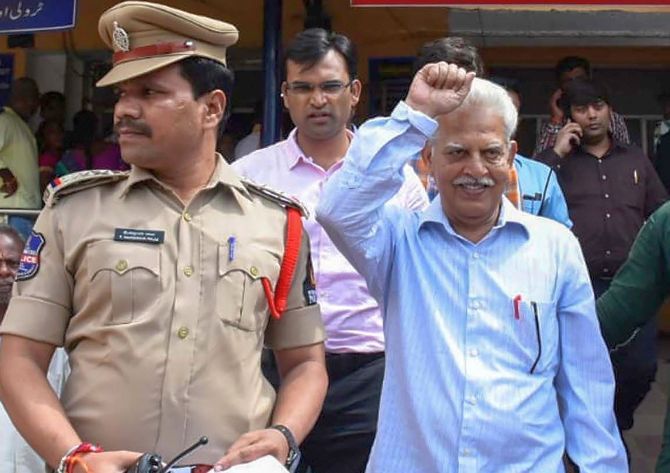
"We knew from the beginning that these 'letters' were planted," says Koel Sen, daughter of Professor Shoma Sen, who was due to retire as head of the English department at Nagpur University when she was arrested in June 2018.
"Anyone who read them could tell the "letters' were fake," continues Koel, "but we had no authentic method to back up our suspicion."
Now that their suspicion has been confirmed by international technological experts, Koel hopes her 62-year-old mother will be proven to be innocent. Yet, she can't bring herself to be too optimistic, given the way the case has gone until now.
Like the other accused, Professor Sen's bail too has been rejected twice after the COVID-19 outbreak, despite her age and comorbidities.
Every time any of the accused has applied for bail, it has been opposed by first the Pune police that initiated the case and then the National Investigation Agency that took it over last year, on the grounds that the accused are linked with Maoists.
"The entire base of the case goes because it's based on fabricated planted evidence," says advocate Susan Abraham, whose husband Vernon Gonsalves is one of the accused.
Gonsalves' laptop and the CPUs of two old computers and two pen drives were taken away by the police when he was arrested in August 2018.
Similarly, the computers of Nagpur-based lawyer Surendra Gadling were also seized by the police when he was arrested in June 2018.
"None of the accused were given hash values of the electronic gadgets seized from them, which makes it easy for tampering to take place," says advocate Abraham. "Planting malware is tampering at a high level."
A hash value is a numeric value which uniquely identifies electronic data. When any change is made to a device, its hash value changes.
The police are required to provide the hash value at the time of a seizure of an electronic device to ensure that there is no tampering done to it subsequently.
"Just to get clone copies of these devices was an uphill task," says Abraham. "Very few among the judges and lawyers know the basics about electronic seizure."
Advocate R Satyanarayan, representing Wilson, Varavara Rao and Surendra Gadling, told Rediff.com, "The Pune police did not provide us clone copies of the hard disks seized despite it being mandatory under Section 207 CrPC (<em<>Criminal Procedure Code). It was only in June 2019, more than a year after the seizure of Rona Wilson's computer, that the Pune sessions judge directed them to do so."
After that, it took the police five months to provide a clone copy of his disk to accused Rona Wilson.
How did Arsenal Consulting get into the picture?
In October 2019, the American Bar Association's Center for Human Rights had brought out a preliminary report expressing concern at the way the Bhima Koregaon trial was proceeding.
The Center, that monitors trials across the world 'to help promote compliance with international fair trial standards', had observed (external link) 'irregularities in the pre-trial proceedings and potential violations of the right to freedom of expression and association'.
Then in March 2020, The Caravan magazine published an article (external link) that said Rona Wilson's hard disk contained malware that allowed remote access.
Co-authored by The Caravan's senior assistant editor Martand Kaushik and software engineer Anjaneya Sivan, the article was based on a cyber-forensic examination conducted by the magazine on the clone copy of Rona Wilson's disk presented in court by the Pune Police and supplied to all the accused.
"Thereafter we decided to approach the American Bar Association," says advocate Satyanarayan.
Significantly, the Pune-based Regional Forensic Science Lab, approached by the NIA, had said no malware was found on the seized computers.
"That is why we have approached the high court praying for the appointment of an SIT consisting of experts in digital forensic analysis presided over by a retired High Court or Supreme Court judge," says Satyanarayan.
N Venugopal Rao, nephew of Telugu poet Professor Varavara Rao, another accused in the Bhima Koregaon case, was also pleased by the findings of Arsenal Consulting. "It vindicates the contention we have been making for the last two-and-a-half years that this is a false case based on fabricated evidence," he says.
"Even the day after the letters were first leaked, Varavara Rao had told the press that it was cooked up evidence that will not stand the scrutiny of courts," recalls Venugopal. "He had said the case was meant only to silence the voices of the accused -- all of them dissenters and human rights defenders -- as long as possible."
"That has been proved as courts have delayed scrutiny of the evidence and the accused have spent 32 months in jail without trial and bail."
81-year-old Varavara Rao's case has drawn national attention because of the degeneration of his health in jail and the denial of bail despite his frequent hospitalisations.
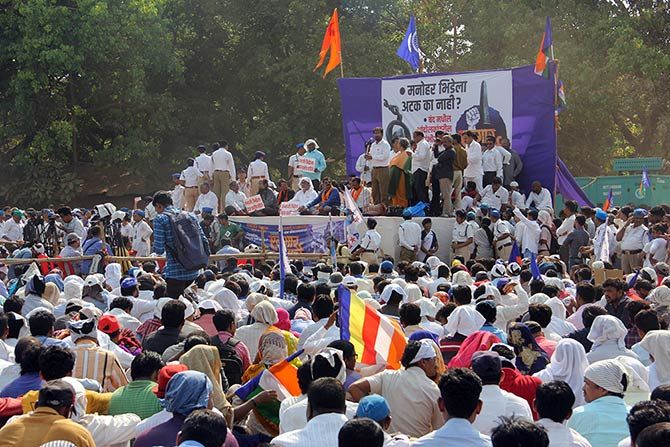
Will the latest development see a marked break from the way the case has been going?
"We certainly hope so," says Koel Sen. "So far there's been nothing positive at all in the way the case has gone. This is the first news that gives us slight hope. But again, I don't know how much we should bank on it."
Reflecting on the way the accused's families' faith in the judiciary, which was unshaken when they were arrested, has since been shaken by the way every argument that the defence has made has been brushed aside, Koel says, "The State just slaps you in the face every time you ask a question. So we have to wait and see."
Feature Presentation: Aslam Hunani/Rediff.com

